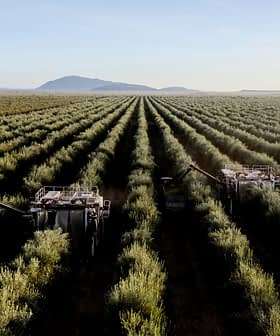Tunisian Export Group Prepares Promotional Blitz

The Tunisian Export Promotion Center (CEPEX) has launched a campaign with 20 global events to boost visibility and sales of Tunisian olive oil in both traditional and emerging markets, including Italy, Spain, the United States, China, Qatar, Saudi Arabia, and Nigeria. CEPEX’s promotion strategy has already led to increased export revenue and aims to capitalize on favorable prospects for olive oil consumption, with the goal of increasing exports, creating job opportunities, and highlighting the quality of Tunisian products on the global stage.
To boost the visibility and sales of its extra virgin olive oil, the Tunisian Export Promotion Center (CEPEX) has embarked on an ambitious campaign featuring 20 global promotional events.
Officials said the goal of the events is to introduce Tunisian olive oil to new markets and reinforce its presence in traditional ones, such as Italy, Spain and the United States. Tunisian officials are especially keen to target emerging markets such as China, Qatar, Saudi Arabia and Nigeria.
Tunisia’s olive oil salvation lies in the very favorable prospects for olive oil consumption, which could reach… €30 billion by 2030.
They also hope to strengthen relationships in existing markets, including South Korea and the United Kingdom, which reduced tariffs on Tunisian olive oil imports in 2021.
Mourad Ben Hassin, the chief executive of CEPEX, told a press conference in Tunis that the events would include tasting days and culinary demonstrations.
The center has already hosted a guided tasting and promotional film screening at an event in the Kenyan capital of Nairobi on January 30th, bringing together Tunisian exporters, Kenyan importers, and retailers.
See Also:Tunisia Has a Plan to Boost Its Olive Oil IndustryA business-to-business meeting with a Congolese delegation in Tunis, where olive oil producers and exporters were present, was also hosted in early February.
CEPEX will be in Portugal for the Lisbon Food Fair in March, followed by Comsoprof in Bologna, Italy in March.
In May, CEPEX will also organize a delegation to participate in Olive Japan in Tokyo, geared toward businesses and consumers.
The following month, the center will bring a delegation to participate in Food & Beverage West Africa in Lagos, Nigeria. Other events have been scheduled throughout the year.
CEPEX’s promotion strategy comes Tunisian exporters enjoyed an excellent return during the 2023/24 crop year.
Data from the National Observatory on Agriculture (Onagri) showed that export revenue in the last ten months of 2023/24 rose to $1.5 (€1.44) billion, a 62-percent increase compared to the same period of the previous season.
Onagri attributed the increased revenue to a slight rise in the volume exported and the significant jumps in olive oil prices at origin.
While prices have fallen significantly since the end of the 2023/24 crop year in September, export volumes will likely rise again in 2024/25. The Tunisian agriculture ministry estimated production to reach 340,000 metric tons in the current campaign.
“Tunisia’s olive oil salvation lies in the very favorable prospects for olive oil consumption, which could reach, according to some export market assessments, €30 billion by 2030,” Salem Fourati, the vice president of the Tunis-based International Studies Association, wrote in Kapitalis.
Fourati, originally from the olive oil-soaked region of Sfax, highlighted how the sustained effort to promote Tunisian olive oil has resulted in individually packaged olive oil climbing to 15 percent of total exports from five percent in the 2022/23 crop year.
For his part, Ben Hassin is optimistic that the CEPEX campaign move the dial for Tunisian exports and believes this will help create more job opportunities in the olive oil sector.
“We believe that our comprehensive promotion program will significantly enhance the visibility of Tunisian olive oil on the global stage,” Ben Hassin said. “Our goal is to increase exports and highlight the rich heritage and superior quality of our products.”









